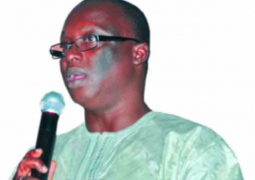Marriage is a social, spiritual, or legal union of individuals. This union may also be called matrimony. While the ceremony that marks its beginning is usually called a wedding and the married status created is sometimes called wedlock.
Marriage is an institution in which interpersonal relationships (usually intimate and sexual) are acknowledged by the state, by religious authority, or both. It is often viewed as a contract. Civil marriage is the legal concept of marriage as a governmental institution, in accordance with marriage laws of the jurisdiction. If recognized by the state, by the religion(s) to which the parties belong or by society in general, the act of marriage changes the personal and social status of the individuals who enter into it.
People marry for many reasons, but usually one or more of the following: legal, social, and economic stability; the formation of a family unit; procreation and the education and nurturing of children; legitimizing sexual relations; to fulfill religious obligations; public declaration of love; or to obtain citizenship.
Marriage may take many forms: for example, a union between one man and one woman as husband and wife is a monogamous heterosexual marriage; polygamy - in which a person takes more than one spouse - which includes, polygamy in which a man takes more than one wife, and polyandry in which a woman takes more than one husband have been common in some societies. A marriage is often formalized during a marriage ceremony, which may be performed either by a religious official, by a secular state authorized officiator, or (in weddings that have no church or state affiliation) by a trusted friend of the wedding participants. The act of marriage usually creates normative or legal obligations between the individuals involved and, in many societies, their extended families.
Article 16 of the Universal Declaration on Human Rights declares that "Men and women of full age, without any limitation due to race, nationality or religion, have the right to marry and to found a family. They are entitled to equal rights as to marriage, during marriage and at its dissolution. Marriage shall be entered into only with the free and full consent of the intending spouses."
In this our turbulent generation, many young people get into marriage without knowing a thing about what it takes to marry.
On the other hand, many parents also force their daughters to get marry at a very tender age. In such marriages the girl normally ends up facing many consequences such as domestic violence.
Some parents also push their daughters into early marriage for reasons better known to them. It is imperative to note that it is a challenge and that people getting marriage should be physically and mentally fit for the relationship.
Another serious scenario in our society is the issue of young people getting married, for instance in the provinces, while staying in the city. Instead of them bringing their wives to their place of residence they leave them to stay in the village without sending the enough ruminants.
Some men justify this by saying that they want their wives to help their parents at the village. This is unfair and one has to stop it. The logic is simple you either bring them to your side or make frequent visits to her. You can also help educate them so that they can also contribute to the development of the family.
Meanwhile some rich people also like marrying very young girls and making them the second or third wives and as a result they sometimes grow old very early due to stress. Even if you have millions Dalasis in the house I believe if you don't have a peace of mind you will not enjoy your marriage.
On the contrary, some young able men also stay away from marriage saying that they lack the resources but also at the same time prefer doing what married men are doing causing problems to many young girls, this is the fact and it is unacceptable it must be stopped!


